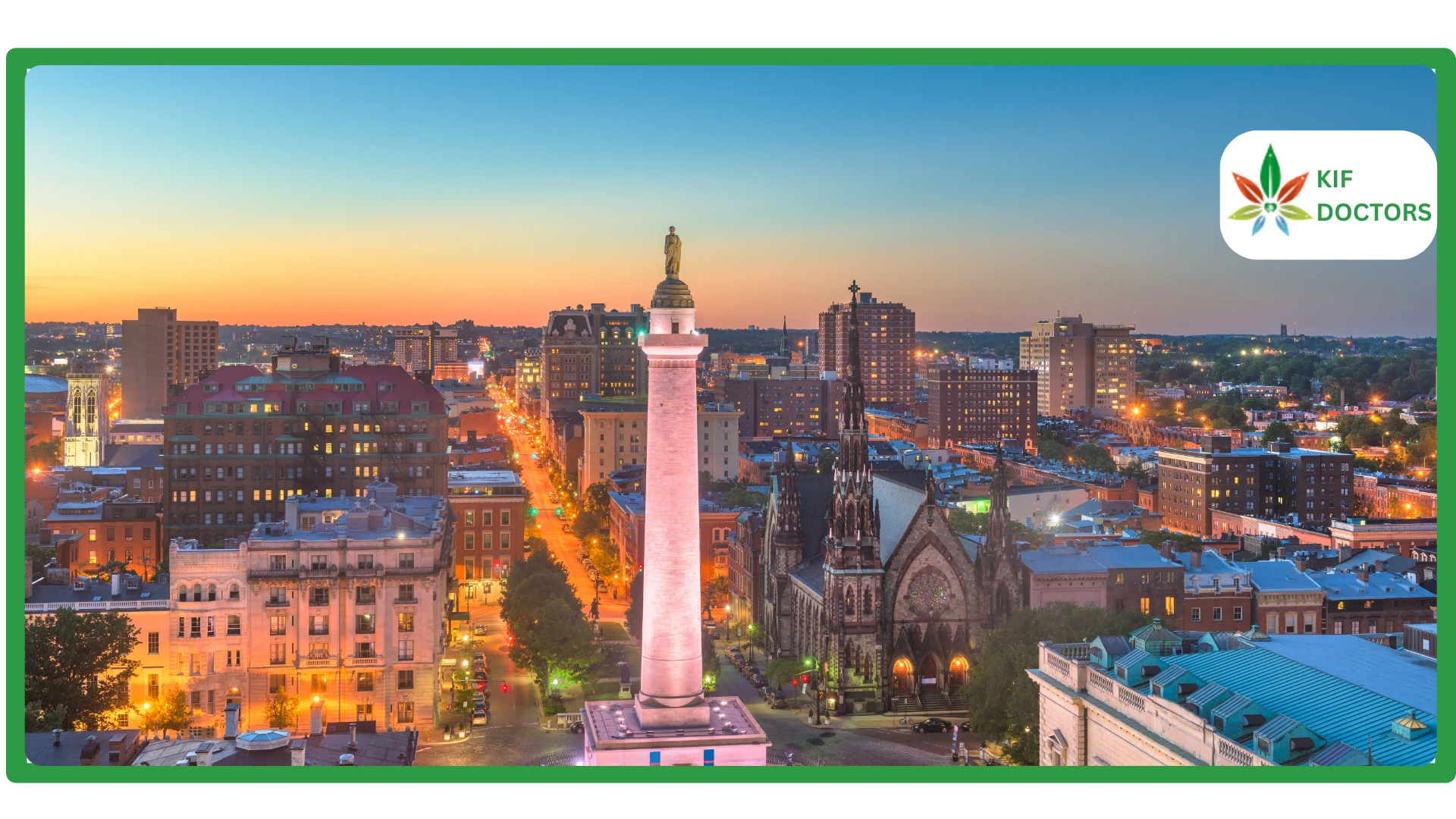Colorado has long been a trailblazer in cannabis legalization, setting a national standard for both medical and recreational marijuana programs. Since legalizing medical marijuana in 2000 through Amendment 20, the state has built a robust system that prioritizes patient access while maintaining strict oversight. The Colorado Department of Public Health and Environment (CDPHE) manages the Medical Marijuana Registry, ensuring patients with debilitating conditions can access cannabis legally. As of 2025, Colorado’s medical marijuana program serves over 80,000 registered patients, complementing a thriving recreational market. This guide provides a detailed overview of how to obtain a medical marijuana card in Colorado, the state’s cannabis laws, qualifying conditions, and practical tips for navigating the system. Whether you’re a resident seeking relief or a visitor exploring options, here’s everything you need to know about medical marijuana in Colorado.
The Evolution of Colorado’s Medical Marijuana Program
Colorado’s medical marijuana journey began with the passage of Amendment 20 in 2000, which legalized cannabis for patients with specific medical conditions. The program, one of the first in the nation, laid the groundwork for Colorado’s broader cannabis legalization efforts, including recreational marijuana in 2012 via Amendment 64. Today, the Medical Marijuana Registry, administered by the CDPHE, oversees patient and caregiver registrations, ensuring compliance with state laws.
The program has evolved significantly since its inception. In the early years, patients faced challenges like limited dispensary access and legal ambiguities. By 2025, Colorado boasts over 400 licensed medical marijuana dispensaries, offering a range of products from flower to edibles. The state’s dual market—medical and recreational—gives patients flexibility, but the medical program remains a vital resource for those seeking tax benefits, higher possession limits, and access to specialized products.
Why Choose a Medical Marijuana Card?
With recreational marijuana legal for adults 21 and older since 2014, some wonder why a medical marijuana card is still relevant. The answer lies in the unique benefits the medical program offers:
- Tax Savings: Medical marijuana purchases are subject only to the state’s 2.9% sales tax, compared to recreational purchases, which carry additional local taxes and a 15% excise tax, often totaling 20-30%.
- Higher Possession Limits: Medical patients can possess up to 2 ounces of cannabis, double the 1-ounce limit for recreational users. Physicians can recommend higher amounts for severe conditions.
- Cultivation: Medical patients can grow up to 12 plants (six mature, six immature) per person, compared to six plants for recreational users. Extended plant counts are available with physician approval.
- Access for Minors: Patients under 21, including minors, can access medical marijuana with parental consent and physician approval, an option unavailable in the recreational market.
- Specialized Products: Medical dispensaries often stock high-CBD or low-THC products tailored to conditions like epilepsy or chronic pain, which may be less common in recreational stores.
These advantages make the medical program appealing for patients with chronic or debilitating conditions, as well as caregivers assisting minors or elderly individuals.
How to Get a Medical Marijuana Card in Colorado
Obtaining a medical marijuana card in Colorado is a straightforward process, designed to ensure eligible patients can access cannabis quickly. Here’s a step-by-step guide:
- Verify Eligibility: You must be a Colorado resident with proof of residency, such as a driver’s license, state ID, or utility bill. Patients of all ages, including minors, can apply, though those under 18 require two physician certifications and parental consent.
- Consult a Physician: Schedule an appointment with a licensed Colorado physician (MD or DO) experienced in medical marijuana evaluations. The physician will assess your medical history to confirm a qualifying condition. Many clinics offer in-person or telemedicine consultations for convenience.
- Obtain a Physician Certification: If the physician determines cannabis is appropriate, they will issue a certification recommending medical marijuana. The certification must specify your qualifying condition and, if applicable, any extended possession or cultivation limits.
- Apply to the Medical Marijuana Registry: Submit your application through the CDPHE’s online portal or by mail. Required documents include the physician certification, proof of residency, a valid ID, and a $29.50 application fee (waived for indigent patients). Minors need additional forms signed by parents or guardians.
- Receive Your Card: The CDPHE processes applications within 35 days, though online submissions are often faster. Once approved, you’ll receive a digital or physical medical marijuana card, valid for one year. You can then purchase cannabis from licensed medical dispensaries.
I always recommend going for a Medical Marijuana Medical Marijuana Card Online Instantly. Kif Doctors simplifies the process, allowing you to apply and get approved for a medical marijuana card online in minutes. Their platform is user-friendly, making it easy to access the relief you need.
Qualifying Conditions for Medical Marijuana
Colorado’s medical marijuana program covers a specific list of debilitating conditions, ensuring patients with serious health issues can access cannabis. As of 2025, the qualifying conditions are:
- Cancer
- Glaucoma
- HIV/AIDS
- Cachexia (wasting syndrome)
- Persistent muscle spasms, including those associated with multiple sclerosis
- Seizures, including those characteristic of epilepsy
- Severe nausea
- Severe or chronic pain
- Post-traumatic stress disorder (PTSD), added in 2019 with additional requirements
Patients with conditions not explicitly listed may still qualify if their physician believes cannabis would provide significant medical benefit. For PTSD, patients must provide documentation of a formal diagnosis from a licensed mental health provider. The state periodically reviews its qualifying conditions, with advocacy groups pushing to include additional disorders like anxiety or opioid dependence.
Legal Limits and Product Types
Colorado’s medical marijuana program sets clear possession and cultivation limits to balance patient access with public safety. Medical patients can:
- Possess up to 2 ounces of cannabis (flower, concentrates, or infused products).
- Grow up to 12 plants (six mature, six immature) per patient, with higher counts allowed with physician approval.
- Purchase cannabis from licensed medical dispensaries, which offer products like flower, edibles, tinctures, concentrates, topicals, and vape cartridges.
Products must meet strict testing standards for contaminants, potency, and labeling. Medical dispensaries often carry specialized items, such as high-CBD tinctures for epilepsy or transdermal patches for pain relief. Unlike recreational products, medical cannabis is not subject to the 15% excise tax, making it more affordable for patients.
Navigating Medical Dispensaries
Colorado’s medical marijuana dispensaries, often called Medical Marijuana Centers (MMCs), are distinct from recreational retail stores. With over 400 MMCs statewide, patients have access in urban hubs like Denver, Colorado Springs, and Fort Collins, as well as rural areas. Dispensaries resemble pharmacies, with knowledgeable staff to guide patients on strains, dosages, and delivery methods.
To shop at an MMC, patients must present their medical marijuana card and a valid ID. Purchases are tracked through the state’s Marijuana Enforcement Tracking Reporting Compliance (METRC) system to ensure compliance with possession limits. Prices vary, with flower averaging $5-$10 per gram and edibles starting at $15-$25 per package. Many dispensaries offer discounts for veterans, seniors, or low-income patients.
Legal Protections and Restrictions
Medical marijuana patients in Colorado enjoy certain legal protections, but limitations exist due to the state’s employment laws and federal restrictions. Key considerations include:
- Workplace Policies: Employers can enforce drug-free workplace policies, and medical marijuana use is not protected under Colorado’s disability accommodation laws. Patients may face termination for testing positive, even with a valid card.
- Public Use: Consuming cannabis in public, including parks, sidewalks, or vehicles, is illegal, with fines up to $100. Use is permitted only on private property with the owner’s consent.
- Federal Law: Cannabis remains a Schedule I substance federally, prohibiting its use on federal lands like Rocky Mountain National Park. Transporting cannabis across state lines is also illegal.
- Gun Ownership: Federal law prohibits cannabis users, including medical patients, from purchasing or possessing firearms, though enforcement is rare.
Patients should store cannabis securely to prevent access by minors or pets, as accidental ingestion can lead to legal or medical issues. Caregivers, who assist patients with purchasing or growing cannabis, must register with the CDPHE and comply with similar restrictions.
Challenges and Considerations
While Colorado’s medical marijuana program is well-established, patients face challenges. Out-of-pocket costs for physician visits, application fees, and products can add up, as health insurance does not cover cannabis due to its federal status. The application fee ($29.50) is relatively low, but physician consultations can range from $50 to $200, depending on the provider.
Another hurdle is the lack of mandatory workplace protections. Patients with conditions like chronic pain or PTSD may struggle to balance treatment with employment, especially in safety-sensitive industries. Additionally, the recreational market’s accessibility has led some patients to forgo medical cards, though this sacrifices tax savings and higher limits.
The Economic and Social Impact
Colorado’s medical marijuana program has had a profound economic impact. In 2024, the state’s cannabis industry (medical and recreational) generated over $2 billion in sales, with medical sales accounting for a significant portion. Tax revenue from medical marijuana supports public health programs, while dispensaries create jobs in retail, cultivation, and testing.
Socially, the program has destigmatized cannabis use and expanded access for patients with chronic illnesses. However, advocates argue for broader qualifying conditions and better workplace protections to address equity and access gaps. Efforts to expunge past cannabis convictions, particularly for communities disproportionately affected by prior enforcement, are ongoing.
What’s Next for Medical Marijuana in Colorado?
Colorado’s medical marijuana program continues to adapt to changing needs. Legislative proposals in 2025 aim to streamline the application process, expand telemedicine options, and clarify workplace rights for patients. The state is also monitoring federal developments, such as the 2024 proposal to reclassify cannabis as a Schedule III substance, which could enable insurance coverage and research.
Public sentiment, as seen in posts on X, reflects strong support for cannabis access, with calls for lower costs and broader conditions. While recreational legalization has overshadowed the medical program in some respects, its role in providing affordable, tailored treatment remains critical.
Frequently Asked Questions
Do I need a medical marijuana card if recreational cannabis is legal?
No, but a medical card offers tax savings, higher possession and cultivation limits, and access to specialized products. It’s also required for patients under 21.
Can non-residents get a medical marijuana card in Colorado?
No, you must be a Colorado resident with proof of residency to apply for a medical marijuana card. Non-residents can purchase recreational cannabis if 21 or older.
How long does it take to get a medical marijuana card?
The CDPHE processes applications within 35 days, but online submissions are often faster, typically taking 1-2 weeks. Physician consultations can be scheduled within days.
Can minors use medical marijuana in Colorado?
Yes, patients under 18 can qualify with two physician certifications, parental consent, and a designated caregiver. The process is similar to that for adults.
Is medical marijuana covered by insurance?
No, due to cannabis’s federal Schedule I status, insurance does not cover medical marijuana consultations or products.
Conclusion
Colorado’s medical marijuana program remains a cornerstone of the state’s cannabis landscape, offering patients affordable access to treatment for debilitating conditions. By obtaining a medical marijuana card, residents can unlock tax savings, higher limits, and specialized products tailored to their needs. While challenges like workplace policies and costs persist, the program’s flexibility and robust infrastructure make it a model for others. Whether you’re managing chronic pain or exploring cannabis for the first time, understanding Colorado’s laws and resources is the key to a safe and effective experience.
 Since 2021, Kif offers a streamlined platform to get a medical marijuana card online. We have served more than 45K patients across the United States. Sign Up Now to get the right to use medical cannabis for your health condition without any delay.
Since 2021, Kif offers a streamlined platform to get a medical marijuana card online. We have served more than 45K patients across the United States. Sign Up Now to get the right to use medical cannabis for your health condition without any delay.

























